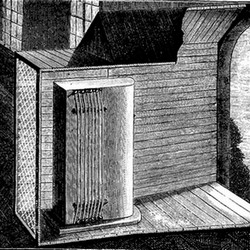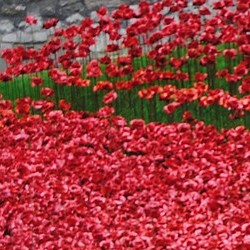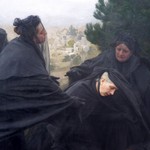
The texts from Des Knaben Wunderhorn can explain both a story or the horrors of war; speak ironically about a miracle or expressing a deep spirituality. This is the case with Urlicht. We don't know who wrote it, nor if it was eventually modified until the form we know thanks to Brentano and Arnim, but we can assume that this anonymous (and maybe collective) author was familiar with the gospels and Catholic rites.
The title, which can be translated as "Primordial light", refers to the Lux Aeterna of the Requiem Mass. The reference to the light in the last verse is also related to this part of the requiem (Requiem æternam dona eis, Domine, et lux perpetua luceat eis; "Eternal rest give to them, O Lord, and let perpetual light shine upon them.") and to an identity between light and God, a matter that inspired long theological discussions. The invocation of the first verse is an allusion to the Virgin Mary, the rosa mystica of the Litany and, more indirectly, to the Hail Mary prayer ("pray for us sinners now, and at the hour of our death."). Finally, we find in the fifth verse a reference to the iconography of the Last Judgement, which usually shows an angel that takes the souls that will meet God to a narrow gate, a scene origined in these verses:
“Enter through the narrow gate. For wide is the gate and broad is the road that leads to destruction, and many enter through it. But small is the gate and narrow the road that leads to life, and only a few find it."(Matthew 7, 13-14)
All of these elements (and others that I might have overlooked) come together in a poem that tells plainly about a man that accepts worldly death, but doesn't resign himself to not enter heaven; finally, his faith will save him and give him eternal life.
With these ten verses, Gustav Mahler wrote in July 1893 a song that, as it happens so many times, hides much elaboration behind the apparent simplicity and economy of means. The two first measures of the first verse, the invocation, are followed by a long interlude which, as you can notice, is conclusive. Then the first of the three stanzas comes, in which the man considers the sufferings of life and accepts death, which he does with a gorgeous musical phrase; Mahler, who should have been aware of that beauty, repeats it. Then an interlude follows that is again conclusive, suggesting the man has died. When we hear the piano again, after a brief silence, the music clearly tells us that his soul is in the sky, a sky identified with nature through a bird singing, but the idyllic atmosphere ends when the angel stops the soul entering. The third stanza follows with the desire of returning to God, and the song closes with a musical phrase very similar to that which closed the first stanza. Despite its calmness, or perhaps due to that, Urlicht is one of Mahler's most moving songs.
The composer wrote a double version, for voice and piano and for voice and orchestra, as he did with all of his Des Knaben Wunderhorn's songs after 1892. Soon after composing it, Mahler included the orchestral version, sang by a mezzo-soprano, as the fourth movement of a symphony he was writing since 1888. In early 1894, he finally found in a poem by Klopstock, Aufersteh'n ("Resurrection"), the inspiration to end the piece; he took the first eight verses from the poem, wrote the rest of the text and finished with a movement for soprano, mezzo-soprano, chorus and orchestra his second symphony, which today is known as "Resurrection". We usually hear Urlicht in this symphonic context, but I suggest that we listen to the voice and piano version, performed by Christoph Prégardien and Michael Gees.
O Röschen rot!
Der Mensch liegt in grösster Not!
Der Mensch liegt in grösster Pein!
Ja lieber möcht’ ich im Himmel sein!
Da kam ich auf einem breiten Weg;
Da kam ein Engelein und wollt’ mich abweisen.
Ach nein! Ich liess mich nicht abweisen!
Ich bin von Gott und will wieder zu Gott!
Der liebe Gott wird mir ein Lichtchen geben,
Wird leuchten mir bis in das ewig selig Leben!
Please follow this link if you need an English translation.



 The...
The... Schubert...
Schubert...











Comments powered by CComment